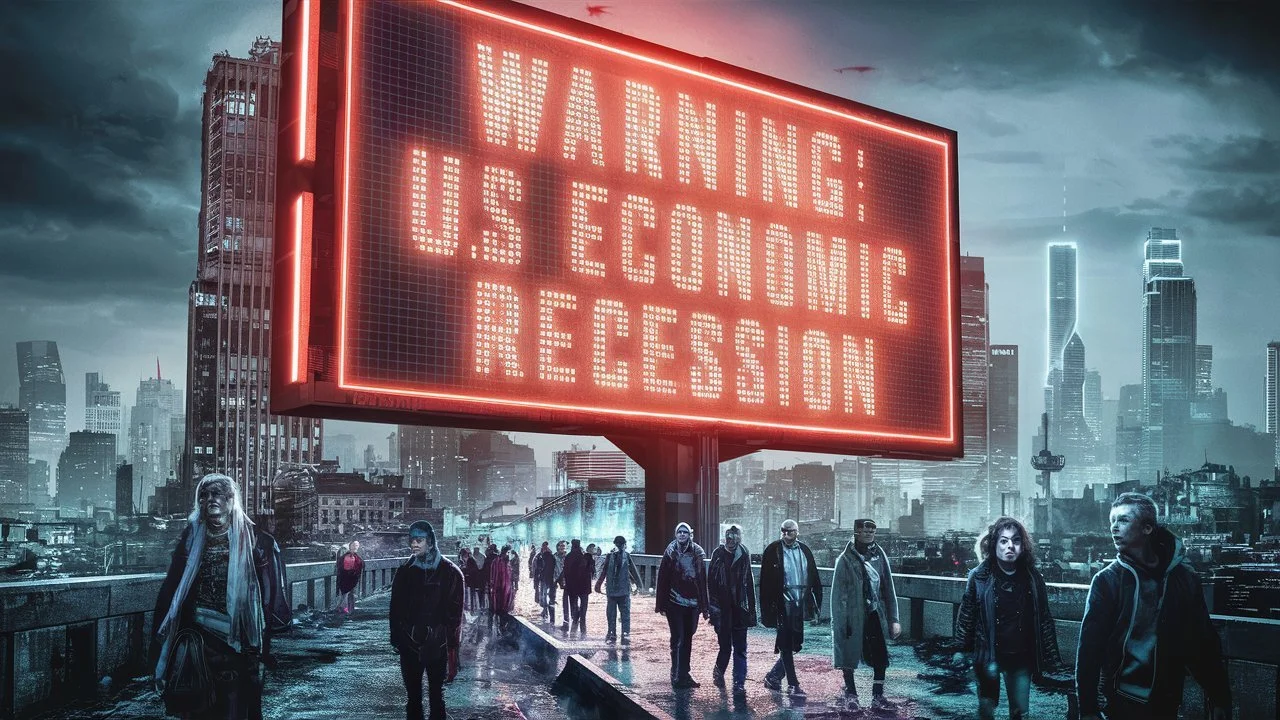Unprecedented Uncertainty: Fabled Recession Signal Warns, But Will History Hold True This Time?
Could this indicator be wrong a 2nd time in 120 years?
The economy is flashing a recession warning that has only been wrong once in the last 120 years. The US economy is a complex and ever-evolving beast. While recent headlines might boast about strong job growth, beneath the surface, some economists are detecting signs of potential trouble. This article will delve into the recent pronouncements by Lakshman Achuthan, co-founder of the Economic Cycle Research Institute (ECRI), who argues that the US economy is flashing a classic recession warning.
The ECRI's Leading Economic Index: A Beacon with (Almost) Perfect Accuracy?
Central to Achuthan's concerns is the behavior of the ECRI's Leading Economic Index. This index, a composite of various economic indicators, has a near-mythical reputation for predicting recessions. Historically, a decline in the Leading Economic Index has been followed by a recession with an almost perfect track record, with the sole exception being the period following World War II.
Achuthan emphasizes that the Leading Economic Index has been on a downward trajectory for the past year. While the decline has plateaued recently, it serves as a significant red flag, particularly considering its historical accuracy. However, it's important to remember that correlation isn't causation. The post-WWII exception demonstrates that the index isn't infallible.
Beyond the Index: Additional Signs of Weakness
Achuthan doesn't rely solely on the Leading Economic Index to build his case. He points to other indicators that suggest a potential economic slowdown:
Weakening Job Market: Headline figures might paint a rosy picture of job growth, but a closer look reveals some concerning trends. The unemployment rate has been steadily rising, reaching a two-year high in February 2024. Additionally, the ECRI's Cyclical Labor Conditions index, which measures cyclical trends in the labor market, has plunged nearly 50% over the past few years. This decline mirrors similar drops observed before previous recessions, such as those in 2001, 2008, and 2020.
Shifting Hiring Patterns: Another interesting observation is the shift in hiring patterns. Job growth appears to be concentrated in non-discretionary sectors like healthcare and education. This could be a sign that consumers are prioritizing essential spending over discretionary purchases, often a precursor to economic downturns.
External Factors Adding Fuel to the Fire
The current economic landscape is further complicated by external factors. The lingering effects of the pandemic, ongoing supply chain disruptions, and the war in Ukraine all contribute to a climate of uncertainty. Perhaps the most significant concern is inflation, which remains stubbornly high. The Federal Reserve's response - raising interest rates to combat inflation - could further dampen economic activity.
A Tug-of-War Between Growth and Weakness
Achuthan acknowledges a "tug-of-war" happening within the US economy. On one hand, there are cyclical weaknesses like those mentioned above. On the other hand, some external factors provide temporary support, such as government stimulus spending during the pandemic and labor hoarding by businesses. If these supports wane, the economic slowdown might become more pronounced.
How This Relates to the Real Estate Market
The real estate market is intricately linked to the overall health of the economy. A potential recession could have a significant impact on several aspects of real estate:
Housing Prices: During recessions, job losses and decreased consumer confidence often lead to a decline in housing demand. This, in turn, can put downward pressure on housing prices.
Mortgage Rates: While rising interest rates are intended to slow inflation, they can also make it more expensive to buy a home. This could dampen buyer activity and potentially lead to a decrease in housing sales.
Foreclosures: If job losses become widespread, some homeowners might struggle to make their mortgage payments, leading to an increase in foreclosures.
However, the exact impact of a recession on the real estate market can vary depending on the severity and duration of the downturn. Local market dynamics also play a crucial role.
The Bottom Line: Uncertainty Reigns
The current economic situation is complex and uncertain. While the ECRI's Leading Economic Index and other indicators raise serious concerns, it's far from a foregone conclusion that a recession is inevitable. The path forward will depend on a confluence of factors, including the effectiveness of the Federal Reserve's policies, the trajectory of inflation, and unforeseen global events.
